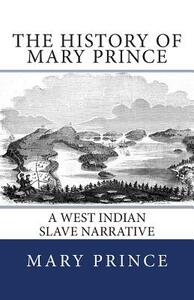Take a photo of a barcode or cover
challenging
informative
fast-paced
It was a good book but I don't have strong feelings about it. It was the first slave narrative written by a black women and therefore was revolutionary at its time, but I have read more recent publications that have stretched my imagination further and gone deeper into the narrative. It is important to note that the author here was censored in telling her story because of who the audience was and by the expectations of polite society. The story was shared for the purpose not just of story-telling, but also for furthering abolition.
challenging
dark
emotional
informative
reflective
sad
tense
fast-paced
dark
emotional
informative
reflective
sad
tense
fast-paced
racisreaslslEven knowing about the brutality with which slaves were treated, it is still shocking to read a first-hand account of the grueling labor (especially salt mining, in my personal opinion) and all the flogging and whipping, the humiliation and dehumanization. It's revolting to see that the harsh treatment was not only used as a disciplinary action (which would not be justified anyway) but also as a way for the white slave-owners to vent their frustrations. The pettiness also appears in the way that Mr. Wood would refuse to give back Mary Prince her freedom, even when offered a lot of money, just out of spite and fear of being humiliated. It's a heartbreaking story overall, and important to be preserved and read so no one forgets how this inhumane system was so ingrained to the European colonial enterprise and mode of living.
And it is also interesting to read the comments by the Anti-Slavery Society that follow Mary Prince's story. I do not want to minimize their efforts and say that they were hypocrites or what not. Nonetheless, it's important to see how the good spirited allies are still steeped in the prejudices of their own times. Granted, when defending Mary Prince from the calumnious allegations against her character, Mr. Pringle says that it is irrelevant towards the matter of her freedom. Still, he makes sure to defend her chastity and laboriousness, because that is what makes Mary a good person, what shows that the Africans and their descendants are worth of being free. Also, the matter of compensation for all the labor that was stolen from Mary Prince and for all the humiliation and pain she has been through is not even considered. She is free to now be a wage worker, cleaning and managing a house-hold for rich English people. I hope that it'd mean no physical punishment and less humiliation, but after what she went through, Mary Prince deserved compensation and to not have to lift a finger for the rest of her life, unless she wished to do so.
It's also relevant to see the lengths that Mr. Pringle had to go through to prove the veracity of Mary Prince's story, and how many people were willing to dismiss the plight of the enslaved peoples as mere fiction or exaggeration. It's specially vexing when comparing to the literature of the century before this story was published, like Robinson Crusoe, which were first published as real reports from explorers and mariners, and that people were willing to take as true uncritically, as long as it came from the mouth of white men.
And it is also interesting to read the comments by the Anti-Slavery Society that follow Mary Prince's story. I do not want to minimize their efforts and say that they were hypocrites or what not. Nonetheless, it's important to see how the good spirited allies are still steeped in the prejudices of their own times. Granted, when defending Mary Prince from the calumnious allegations against her character, Mr. Pringle says that it is irrelevant towards the matter of her freedom. Still, he makes sure to defend her chastity and laboriousness, because that is what makes Mary a good person, what shows that the Africans and their descendants are worth of being free. Also, the matter of compensation for all the labor that was stolen from Mary Prince and for all the humiliation and pain she has been through is not even considered. She is free to now be a wage worker, cleaning and managing a house-hold for rich English people. I hope that it'd mean no physical punishment and less humiliation, but after what she went through, Mary Prince deserved compensation and to not have to lift a finger for the rest of her life, unless she wished to do so.
It's also relevant to see the lengths that Mr. Pringle had to go through to prove the veracity of Mary Prince's story, and how many people were willing to dismiss the plight of the enslaved peoples as mere fiction or exaggeration. It's specially vexing when comparing to the literature of the century before this story was published, like Robinson Crusoe, which were first published as real reports from explorers and mariners, and that people were willing to take as true uncritically, as long as it came from the mouth of white men.
Graphic: Racial slurs, Racism, Slavery, Torture, Violence, Trafficking
challenging
dark
emotional
informative
sad
tense
fast-paced
emotional
informative
sad
slow-paced
dark
reflective
sad
fast-paced
challenging
dark
emotional
reflective
sad
tense
fast-paced
Rating slave narratives (like...can I say I 'loved' this book when it's utterly devastating?) makes me feel some type of way, but know that this is an important book to read. Especially in terms of early Black literature and slavery.






